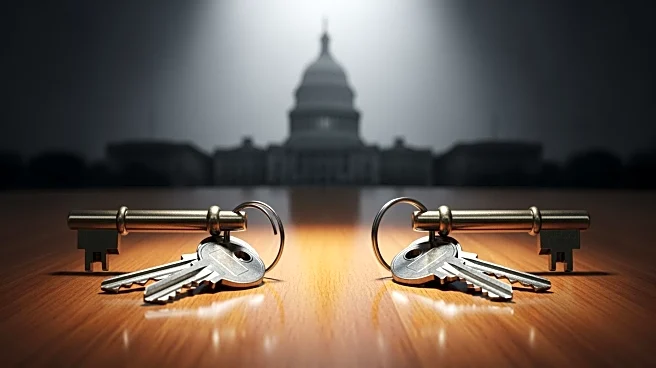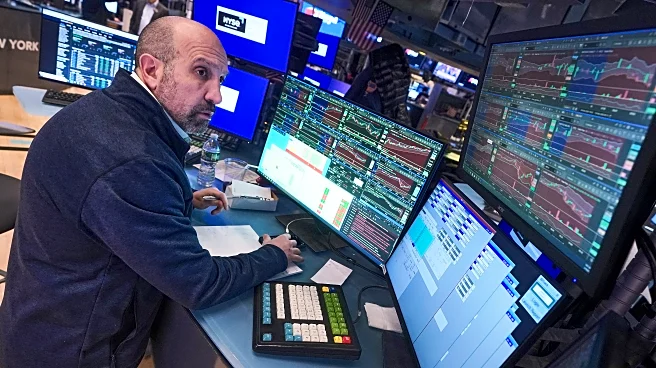What's Happening?
Congress is currently experiencing its longest government shutdown, with bipartisan talks intensifying to resolve the impasse. A group of lawmakers is working to end the standoff, although it remains uncertain
if Democrats will achieve their primary goal of securing health care concessions. Senator Susan Collins, a leading GOP figure in spending discussions, expressed cautious optimism about reaching a resolution by the week's end. However, Senate Majority Leader John Thune noted that while progress is being made, the situation remains complex. The Senate is expected to draft a new stopgap bill to extend government funding, potentially until January, to allow more time for negotiations. The shutdown, now in its 35th day, is causing significant disruptions, including increased demand at food banks and air traffic delays.
Why It's Important?
The prolonged shutdown is having widespread effects on the U.S. economy and public services, with furloughed workers seeking unemployment benefits and essential services facing disruptions. The political stakes are high, as polling indicates that the public largely blames President Trump and the Republican Party for the shutdown. This situation complicates the administration's efforts to maintain a favorable public image. The shutdown also highlights the ongoing debate over health care, particularly the extension of enhanced Obamacare subsidies, which remains a contentious issue between Democrats and Republicans. The outcome of these negotiations could have significant implications for future health care policy and the political landscape.
What's Next?
As negotiations continue, both parties face pressure to reach a compromise. Democrats are pushing for health care concessions, while Republicans are focused on reopening the government. The potential drafting of a new stopgap bill could provide temporary relief, but long-term solutions will require bipartisan cooperation. The White House's role in these discussions remains limited, with President Trump and his aides focusing on other policy priorities. The resolution of the shutdown will likely influence upcoming elections and shape the political narrative in the months ahead.
Beyond the Headlines
The shutdown underscores deeper issues within the U.S. political system, including partisan gridlock and the challenges of negotiating major policy changes. The situation also raises questions about the effectiveness of current legislative processes and the ability of political leaders to address critical issues such as health care reform. The ongoing debate may lead to shifts in party dynamics, with potential implications for future elections and policy decisions.











